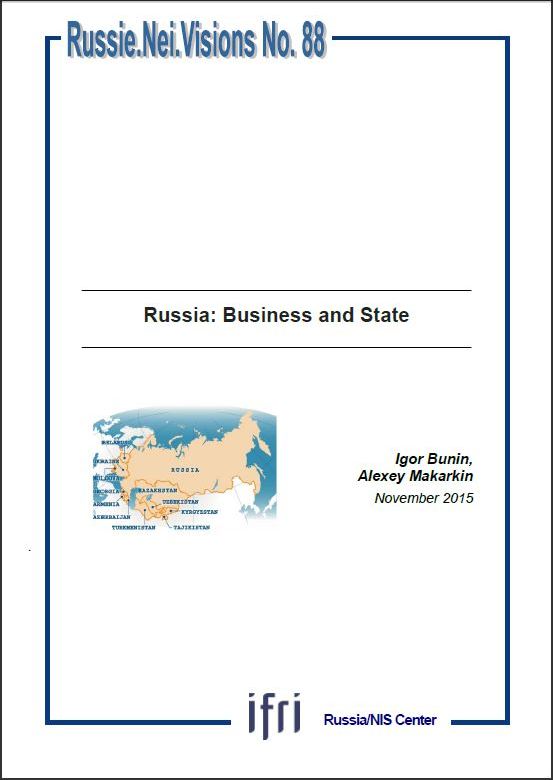Russia: Business and State

Business in Russia today is closely intertwined with the political sphere. But the forms of business’s involvement in politics have differed radically at different stages in history. Initially, business played an active role, displacing the government from its position due to its vigorous expansion. Subsequently, the state began to regroup, reinforcing its positions not just in politics but in the market too. Despite increased economic uncertainty and enormous changes in Russia’s foreign policy positions, the government currently remains the central actor in both Russian politics and the economy.
That state of affairs is unlikely to change significantly in the short term.
Given the domestic economic crisis and tensions in relations with the West, the Russian business community is currently falling back on the development of its own individual strategies. These are aimed not so much at growth as at survival in the new conditions. At the same time, Russian experience shows that private initiative is capable of survival in the most unfavorable of circumstances. A new “leap forward” of the kind seen in the 1980s and 1990s is unlikely thanks to the fact that the main players are older than they once were, the underlying economic structures have ossified in the meantime and there is no longer the same drive (though this has not disappeared altogether). Nevertheless, the possibility of private enterprise being reenergized should not be ruled out.
Dr Igor Bunin is the president of the Center for Political Technologies and director of the <Politcom.ru> website.
Alexei Makarkin is first deputy director of the Center for Political Technologies.
Download the full analysis
This page contains only a summary of our work. If you would like to have access to all the information from our research on the subject, you can download the full version in PDF format.
Russia: Business and State
Related centers and programs
Discover our other research centers and programsFind out more
Discover all our analysesRussia, the Palestinians and Gaza: Adjustments after October 7th
The Soviet Union (USSR), and subsequently the Russian Federation as its internationally recognized legal successor, has consistently sought to play a visible role in efforts to resolve the Israeli-Palestinian conflict.
Deathonomics: The Social, Political, and Economic Costs of War in Russia
The report attempts to outline and examine a truly new phenomenon in Russian society, dubbed “deathonomics”—the making of a mercenary army against the backdrop of the Kremlin’s war in Ukraine, eventually replacing both the Soviet (conscript) and early new Russian (contract) armies. It notes that, by the end of 2023, this trend had turned the military service into one of the highest-paying professions in the country, something not seen in Russia on such a scale since the late 17th century.
Russia's Asia Strategy: Bolstering the Eagle's Eastern Wing
Among Russia’s strategic priorities, Asia traditionally played a secondary role compared to the West. In the mid-1990s, then Foreign Minister Yevgeny Primakov initiated a rapprochement with China and India. Then, in 2014, deteriorating relations between Russia and the West prompted Moscow to begin its “great pivot to the East”.
Kazakhstan After the Double Shock of 2022: Political, Economic and Military Consequences
The year 2022 represented a dual shock for Kazakhstan. In January, the country faced its most severe political crisis since independence, followed in February by Russia’s full-scale invasion of Ukraine, which cast uncertainty over the borders of post-Soviet states. These consecutive crises profoundly shaped Kazakhstan’s domestic and foreign policy.












